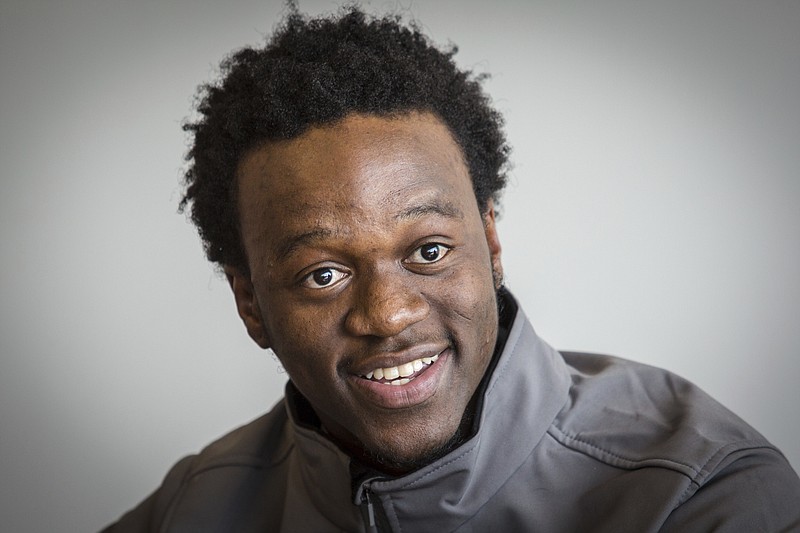PORTLAND, Maine (AP) — A judge on Friday ruled a high school student in Maine who fled his native Zambia can compete in a government-funded national poetry contest.
Judge John Woodcock overturned the National Endowment for the Arts’ rejection on the grounds the student doesn’t meet U.S. citizenship rules.
Allan Monga, a junior at Deering High School, won Maine’s “Poetry Out Loud” contest but initially wasn’t allowed to compete nationally because he hasn’t yet been granted legal asylum. He and the Portland school district sued the NEA to let him participate in the finals, which start Monday in Washington.
NEA lawyers cited a contest rule requiring competitors at state and national finals to be U.S. citizens or permanent residents with a valid tax identification or Social Security number, which are needed to receive prizes. A total of $50,000 in awards and school stipends are given at the national finals, including $20,000 for the national champion.
The NEA lawyers noted when Monga was preparing to compete in the state finals in Maine, the Maine Arts Commission contacted the NEA and was told he wasn’t eligible to compete but chose to ignore it.
Monga’s lawyers argued NEA’s eligibility rule discriminates against asylum-seekers and violates civil rights laws. They said it takes away his right to an education — and specifically a once in a lifetime opportunity — that should be open to anyone in the country.
Maine Democratic U.S. Rep Chellie Pingree, who co-leads the Congressional Arts Caucus, urged the NEA to reconsider its decision to exclude Monga on the basis of his immigration status. She said in an April 12 letter to the NEA it was “aware” Monga had received a Social Security number, and she wasn’t aware of any statutory grounds to keep him from participating.
However, despite his having a Social Security number, the NEA maintained that Monga was ineligible because he’s not a citizen or permanent resident. It asserted Monga’s lawyers incorrectly equated the status of people who have applied for asylum with those who are legal permanent residents and argued allowing him to compete wouldn’t be fair to students across the country whose immigration status did not qualify them to compete in their state’s competition.

